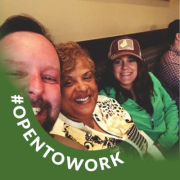Netsurion offers a comprehensive solution for centralized log management, SIEM, and managed services, ensuring continuous monitoring and security event analysis for diverse organizations, enhancing IT security and compliance.



| Type | Title | Date | |
|---|---|---|---|
| Category | Managed Security Services Providers (MSSP) | Apr 18, 2025 | Download |
| Product | Reviews, tips, and advice from real users | Apr 18, 2025 | Download |
| Comparison | Netsurion vs Check Point CloudGuard Network Security | Apr 18, 2025 | Download |
| Comparison | Netsurion vs Secureworks Taegis Managed XDR / MDR | Apr 18, 2025 | Download |
Netsurion centralizes event management through SIEM and managed services. Organizations leverage it for vulnerability assessment and intrusion detection, integrating logs from Windows, Linux, and network devices. Its SOC provides 24/7 monitoring, ensuring compliance with PCI and audit standards. Real-time alerts and efficient log data aggregation enhance threat identification and response. Weekly reports and insights into user lockouts contribute to robust security management, beneficial for firms with constrained resources.
What are some key features of Netsurion?Netsurion is implemented across industries like finance, healthcare, and retail, where security is crucial. These sectors require robust monitoring and compliance solutions, utilizing Netsurion's seamless integration with their existing infrastructure to manage security operations effectively, addressing both regulatory needs and threat management.
Netsurion was previously known as Netsurion Managed Threat Protection, Netsurion EventTracker.
The Salvation Army, The FRESH Market, Pacific Western Bank, NASA, American Academy of Orthopaedic Surgeons (AAOS), and Talbot’s Stores